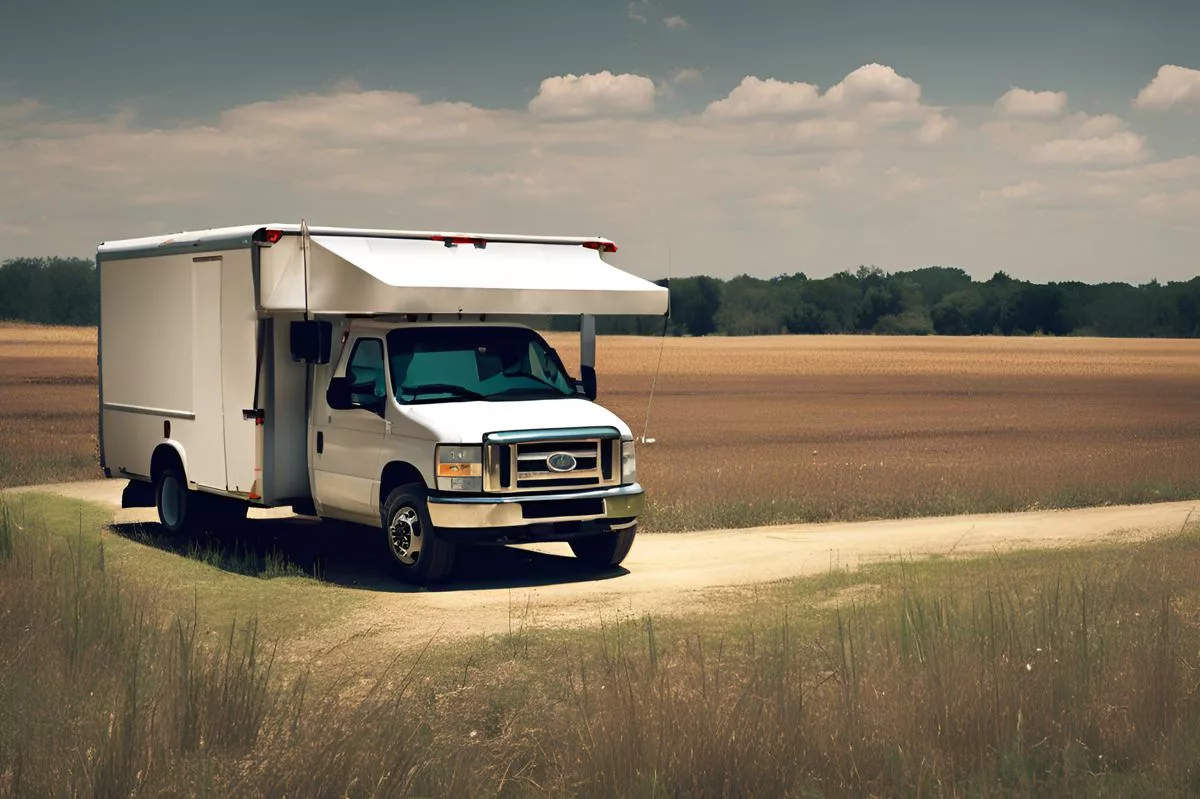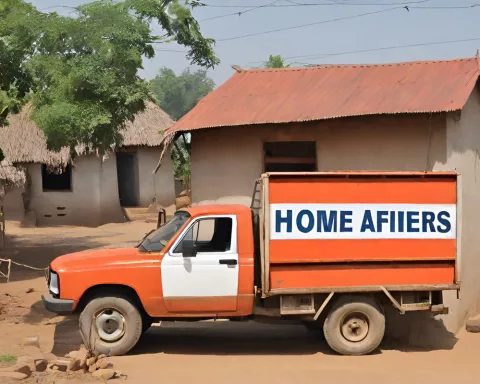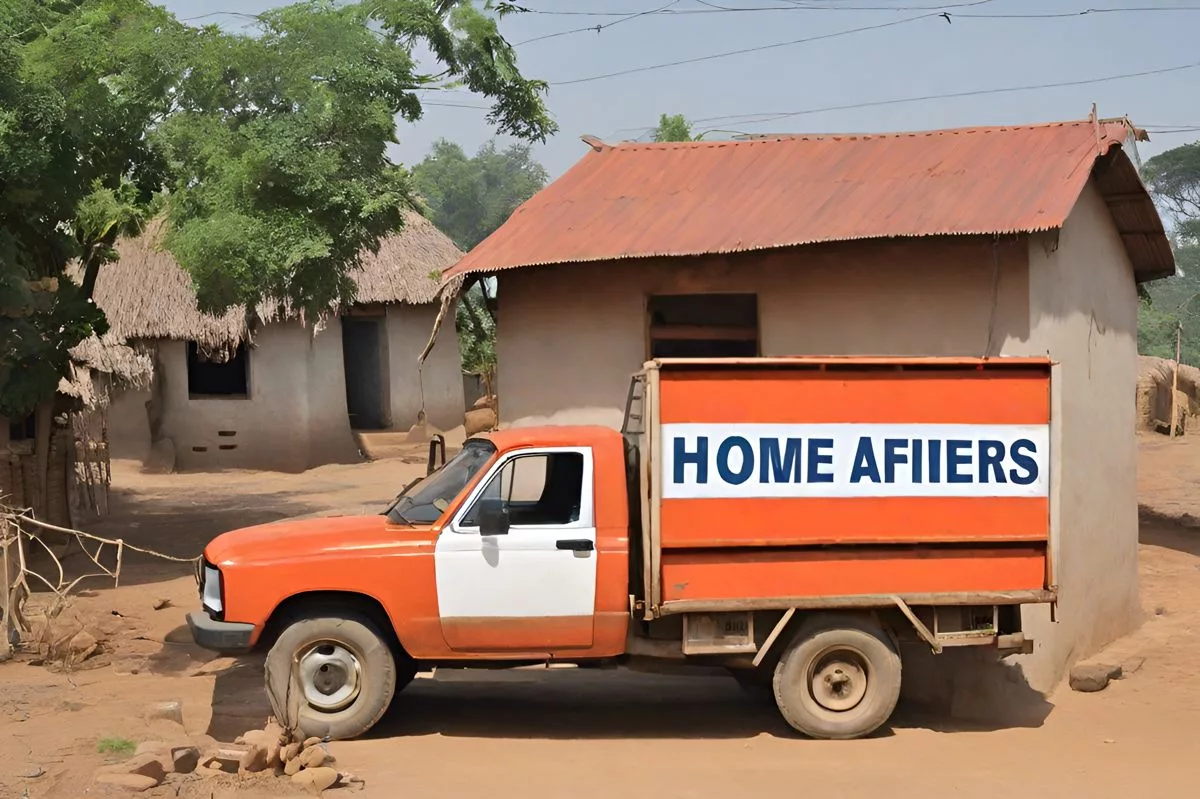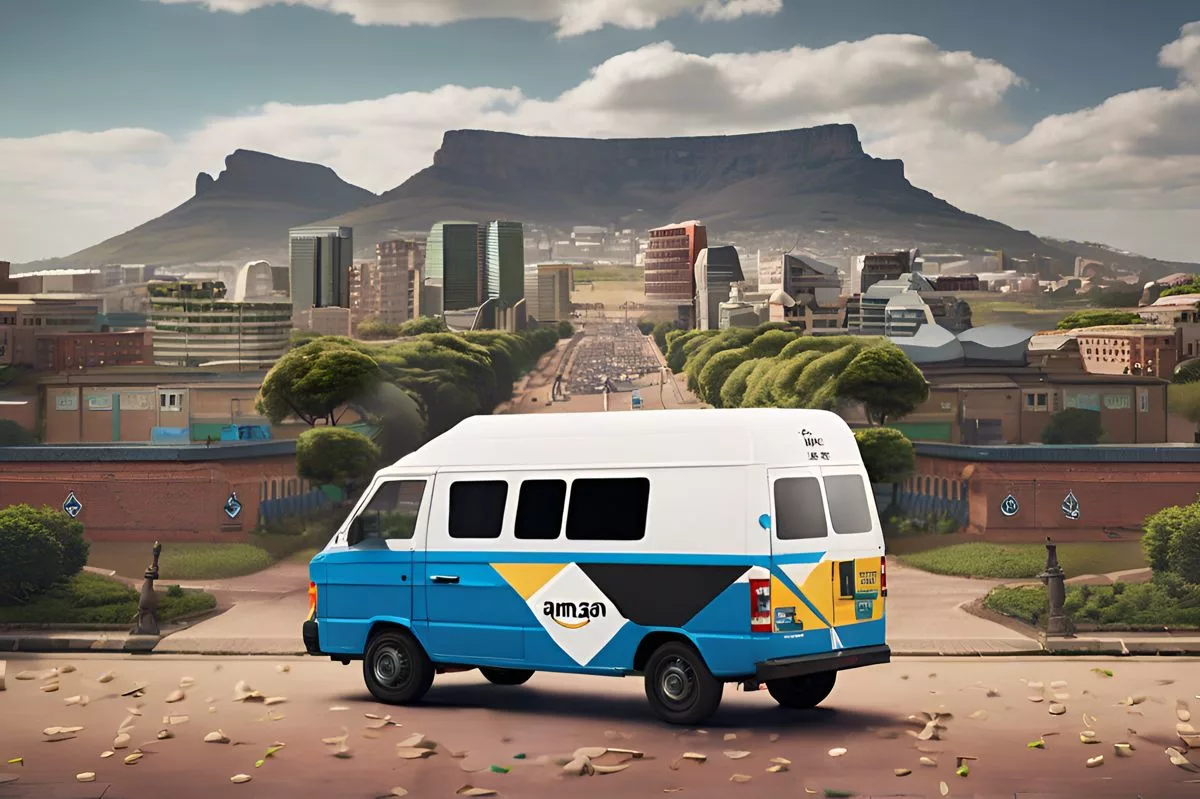The Department of Home Affairs in South Africa has launched a groundbreaking initiative called “Home Affairs on Wheels”, bringing government services closer to the populace through a fleet of mobile office trucks. The trucks offer fully-equipped services, including applications for passports, smart IDs, birth, marriage, and death certificates, and will be stationed in towns and villages at specific times. The initiative aims to reduce the costs and distances rural residents incur to access these services, with plans to add a hundred more trucks each year until they reach a thousand.
What is the Home Affairs on Wheels initiative?
The Home Affairs on Wheels initiative is a groundbreaking project launched by the Department of Home Affairs in South Africa. It aims to bring government services closer to the populace, especially rural residents, by delivering services directly to the people through a fleet of fully-equipped mobile office trucks. With a hundred trucks already in operation and plans to add a hundred more each year until they reach a thousand, this program is set to redefine public service delivery.
The Bold Initiative
A groundbreaking initiative has dawned, promising a new era to the inhabitants of Mokopane, Limpopo. The Department of Home Affairs unveiled the Mokopane Office and Mobile Office Trucks. President Cyril Ramaphosa officiated the launch at the Mahwelereng Stadium, expressing his enthusiasm for this progressive step towards bringing government services closer to the populace.
The initiative, aptly named ‘Home Affairs on Wheels‘, pledges to transform the way Home Affairs services are delivered across South Africa. The project seeks to expedite the acquisition and delivery of these services while reducing the costs associated. Such improvements are particularly advantageous for rural residents, reducing the often considerable distances and expenses they incur to access these services.
Taking Services to the People’s Doorstep
The mobile offices come fully equipped and maintain constant connectivity, designed to deliver services directly to the people. The trucks enable residents to apply for vital documents such as passports, smart IDs, birth, marriage, and death certificates on site. With a fleet of a hundred trucks already in operation and plans to add a hundred more each year until they reach a thousand, this program is set to redefine public service delivery.
However, the mobile trucks will not constantly be on the move. They will maintain station in a village or town at specific times, enabling residents to plan their visits. The strategic decision to extend these mobile offices to schools is a stellar move that ensures learners do not miss school to access these services.
Keeping Pace with the Digital Era
In an effort to stay in sync with the digital age, the Department of Home Affairs plans to introduce a kiosk system. This will allow residents to access services much like withdrawing money from an ATM. The walk-in kiosks will streamline applications for replacement copies of birth, marriage, or death certificates and will also facilitate applications for passports or smart ID cards.
The government’s progressive initiatives extend further. The establishment of Home Affairs offices in hospitals for birth registrations has significantly boosted the rate of civil registrations. This move is projected to consistently reduce the number of late registrations of births. Besides the 412 Home Affairs offices spread across the country, service reach has been broadened through partnerships with banks, shopping malls, and expanded offices like the newly inaugurated Mokopane office.
Honoring Historical Context and Moving Forward
This launch of the mobile offices holds deep historical significance. As South Africa commemorates the 30th anniversary of its liberation, it’s important to remember that the apartheid regime had severely undermined the dignity of black South Africans, restricting their freedom of movement and work opportunities. Black South Africans were compelled to carry a ‘dompas’, making them feel like foreigners in their own country.
However, in the post-apartheid landscape, transformation continues. Since 1994, the Department of Home Affairs has acted as the guardian and protector of South African citizens and legal residents. By issuing legal identification and documentation, the department is enabling people to lead lives of dignity, ensuring their right to access public services and social protection, to vote, to find work, to open bank accounts, and to travel across borders.
The civil registration statistics gathered by the Department of Home Affairs inform decision-making, policy formation, planning, monitoring, and evaluation. The dedication to make civil registration as accessible as possible has seen massive progress since democracy. The inauguration of the expanded Home Affairs office in Mokopane and the roll-out of these mobile offices are furthering this commitment.
A Call to Action
President Ramaphosa applauded this successful launch and commended the Department of Home Affairs for their persistent efforts. He urged the Mokopane residents to take ownership of these mobile trucks and to view them as community assets designed for the benefit of all.
The President reiterated the importance of working together to build a South Africa where everyone can access the services they need, ensuring no one is left out. The vision behind this initiative is one of empowerment, service, and inclusiveness, echoing the indomitable spirit of South Africa. The launch of the Mokopane Office and Mobile Office Trucks is a testament to the government’s dedication to this vision and a significant stride towards a more accessible and inclusive South Africa.
What is the Home Affairs on Wheels initiative?
The Home Affairs on Wheels initiative is a groundbreaking project launched by the Department of Home Affairs in South Africa. It aims to bring government services closer to the populace, especially rural residents, by delivering services directly to the people through a fleet of fully-equipped mobile office trucks. With a hundred trucks already in operation and plans to add a hundred more each year until they reach a thousand, this program is set to redefine public service delivery.
What services do the mobile office trucks offer?
The mobile office trucks offer fully-equipped services, including applications for passports, smart IDs, birth, marriage, and death certificates. They will be stationed in towns and villages at specific times to bring government services closer to rural residents.
Will the mobile office trucks constantly be on the move?
No, the mobile office trucks will not constantly be on the move. They will maintain station in a village or town at specific times, enabling residents to plan their visits. The strategic decision to extend these mobile offices to schools is a stellar move that ensures learners do not miss school to access these services.
How is the Department of Home Affairs keeping pace with the digital era?
In an effort to stay in sync with the digital age, the Department of Home Affairs plans to introduce a kiosk system. This will allow residents to access services much like withdrawing money from an ATM. The walk-in kiosks will streamline applications for replacement copies of birth, marriage, or death certificates and will also facilitate applications for passports or smart ID cards.
How is the Home Affairs on Wheels initiative honoring historical context and moving forward?
The launch of the mobile offices holds deep historical significance. As South Africa commemorates the 30th anniversary of its liberation, it’s important to remember that the apartheid regime had severely undermined the dignity of black South Africans, restricting their freedom of movement and work opportunities. However, in the post-apartheid landscape, transformation continues. Since 1994, the Department of Home Affairs has acted as the guardian and protector of South African citizens and legal residents. By issuing legal identification and documentation, the department is enabling people to lead lives of dignity, ensuring their right to access public services and social protection, to vote, to find work, to open bank accounts, and to travel across borders.
What is the significance of the launch of the Mokopane Office and Mobile Office Trucks?
The launch of the Mokopane Office and Mobile Office Trucks is a testament to the government’s dedication to the vision of an accessible and inclusive South Africa. The President urged Mokopane residents to take ownership of these mobile trucks and to view them as community assets designed for the benefit of all. The vision behind this initiative is one of empowerment, service, and inclusiveness, echoing the indomitable spirit of South Africa.












